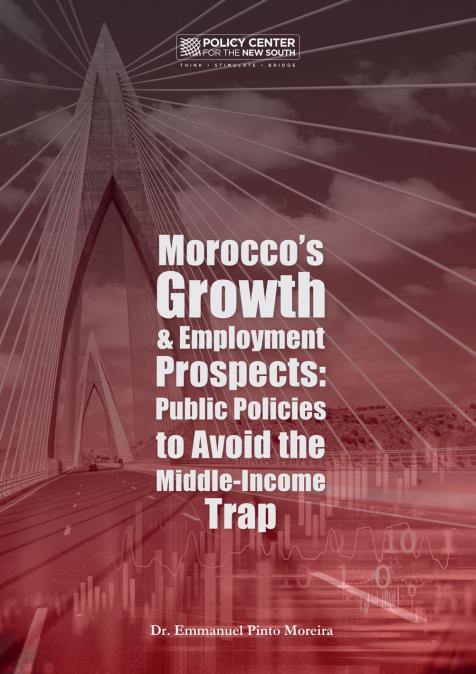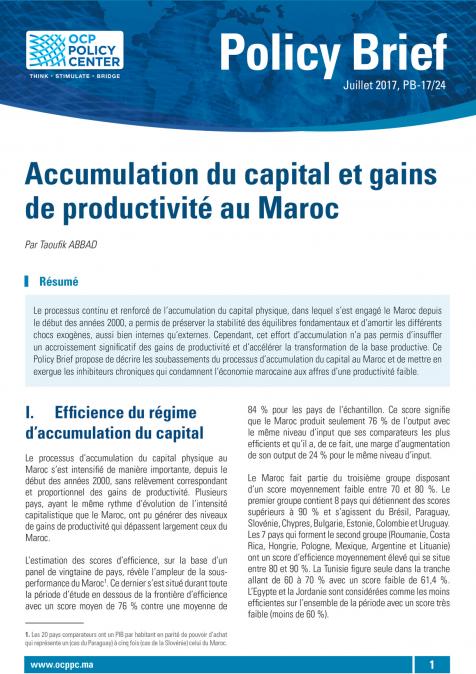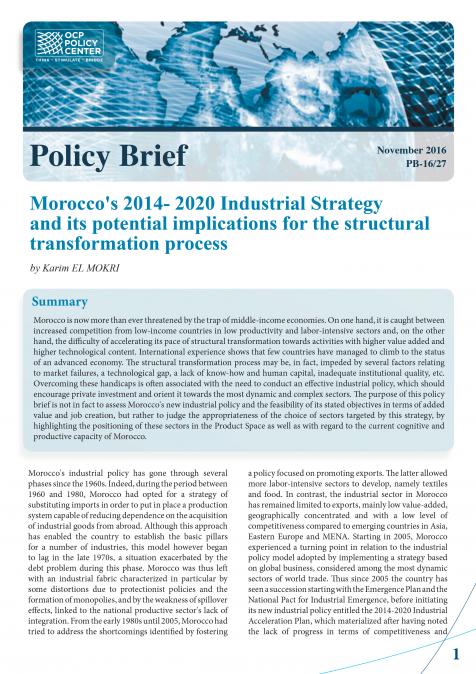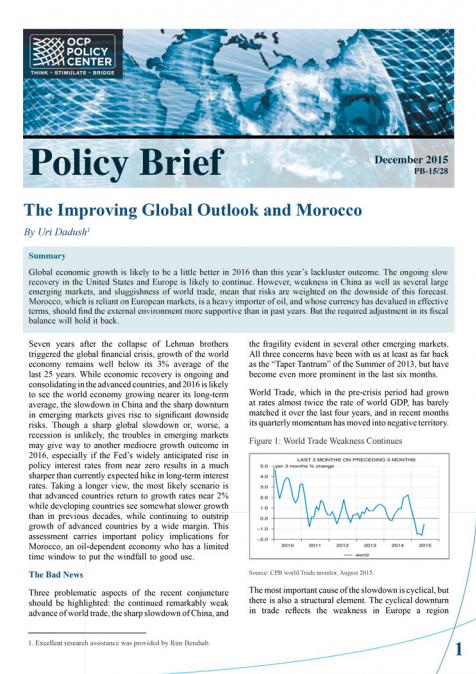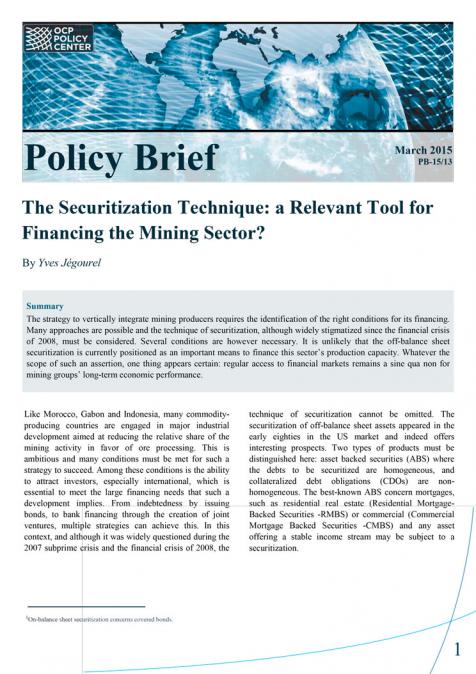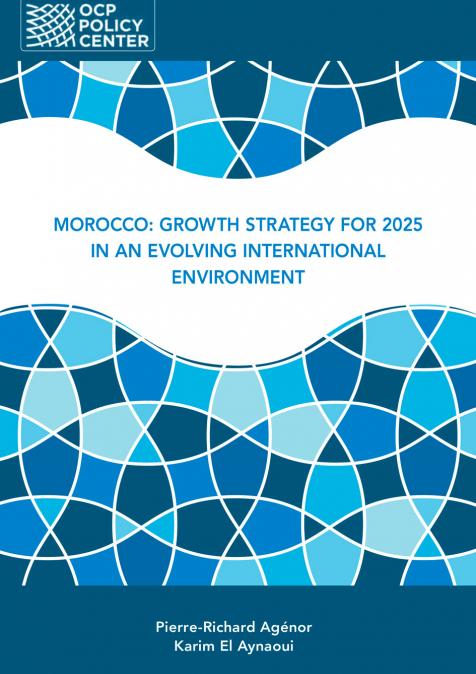Publications /
Book / Report
This book studies Morocco’s growth and employment prospects in the context of a new growth model aimed at avoiding a middle-income trap, in a rapidly changing international environment marked by increased competition from low-wage economies and growing automation of low-skilled jobs. Chapter 1 discusses the changing nature of the international environment facing Morocco and provides the rationale for changing the country’s growth model. Chapter 2 reviews the growth model that Morocco has pursued in the past few decades and discusses its limitations going forward. Chapter 3 characterizes the proposed growth model, promoting the transition from labor-intensive imitation activities to technology-intensive innovation activities ; increasing public investment in advanced infrastructure ; improving the quality of education, as well as productivity and increasing value added in key sectors (including agriculture, high-end tourism, and renewable energy) ; and implementing measures designed to promote women’s participation in the labor force and reduce gender inequality. Chapter 4 attempts to quantify the medium-run effects of these policies on growth, employment, and unemployment. It concludes that to achieve high-income status and reduce unemployment significantly, Morocco will need to implement far-reaching reforms, to increase growth to a range of 6-7 percent and improve employment creation to about 35,000 jobs per percentage point of growth.
Link to purchase coming soon.

